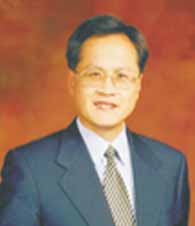|
Executive Interviews: Interview with Arthur Yeung on Managing Complexity
August 2008
-
By Dr. Nagendra V Chowdary
 Prof.Arthur Yeung
Prof.Arthur Yeung Philips Chair Professor of Human Resource Management, Director of Centre of Organization and People Excellence, and Associate Dean at China Europe International Business School (CEIBS), Shanghai, and People's Republic of China. 
What do you think are going to be
the characteristics of a global
corporation in the next 10-15 years?
Would they be drastically different
from the current global
corporations? What definite changes
do you foresee?Two major trends will shape the
future development of global
corporation in the next 10-15 years.
The first trend is the rising
purchasing power and economic
livelihood of emerging economies in
Asia, Latin America, and to some
extent Africa. This implies that the
business operation in these emerging
markets will gain more weight in
global business portfolio, resulting in
bigger operations in these markets
and more
|
|
talent from these markets.Hence, I expect the top leadership
team in global corporation will be
more diverse, with more balanced
representation of senior executives
from different parts of the world
rather than primarily from the US or
Europe. This also implies greater
challenge in cultural diversity for
teams at all levels, starting from the
top all the way to working teams in
R&D, new product development,
procurement, customer service, etc.
The second trend is the prevalence
of information technology and the
internet. This will enable businesses
to operate in more scattered locations
but all linked together in real time
through shared database and lowcost
but broad bandwidth
communication. This also enables
more out-sourcing in both business
activities (like design, production,
etc.) and administrative support
(through business process
outsourcing). The implication is that
geographical and organizational
boundary can become less and less
relevant. Corporations can afford to
be more scattered around the world and more specialized along the value
chain to utilize the best resources and
talent anywhere in the world. The
challenges in regional and cultural
complexities will further increase in
term of interpersonal/social
dimension though technology may
no longer be an issue. Both the globalization and technology
trends convince me that future global
corporations will be more complex in
organization, not less. The
requirements as effective global
leaders will also be more challenging
in terms of their abilities to manage
complexity.
1.
Managing the Global Supply Chain Case Study
2. ICMR
Case Collection
3.
Case Study Volumes
|
The Interview was conducted by Dr. Nagendra V Chowdary, Consulting Editor, Effective
Executive and Dean, IBSCDC, Hyderabad. This Interview was originally published in Effective Executive, IUP, August 2008. Copyright © August 2008, IBSCDC
No part of this publication may be copied, reproduced or distributed, stored in a retrieval
system, used in a spreadsheet, or transmitted in any form or medium electronic,
mechanical, photocopying, recording, or otherwise without the permission of IBSCDC. |
